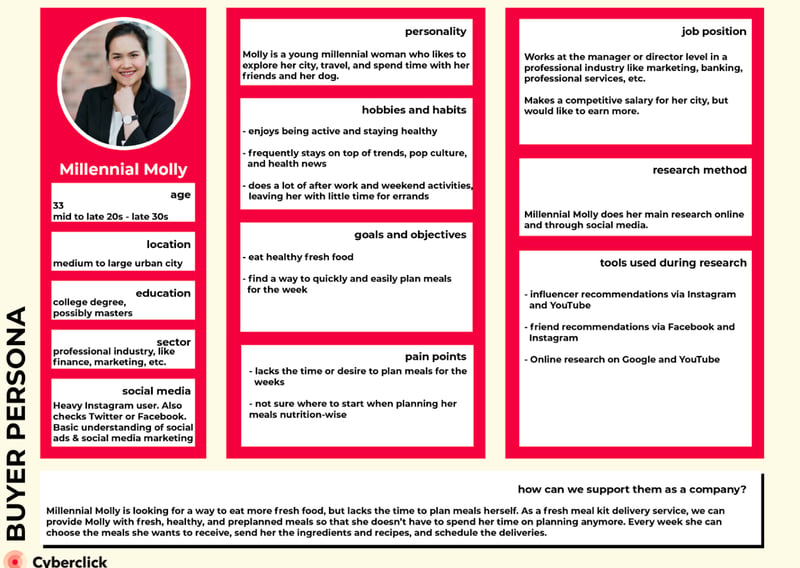Table of Contents
Table of Contents
Getting a startup off the ground isn't easy.
No surprises then that only 1 in 12 grow up and become successful businesses.
Sales – who would have guessed? – play a massive role in determining whether you're part of the 8% that bask in the glory of success or the 92% that go back to focusing on their day job.
The basic formula goes:
Too few sales = fail to stay afloat or fail to attract investors and level up.
But it isn't all doom and gloom, and you aren't destined for failure.
So give your company a fighting chance and equip your sales team with the right startup sales strategies.
And before you ask, “Which ones?” keep reading as we're about to break down seven proven strategies you can implement today.
Off we go.
But first…
What Is a Startup Sales Strategy?
Your startup sales strategy is none other than the plan your startup relies on to win new business. It comprises various methods and tactics that help your team better communicate with leads, prospects, and existing customers. Its goal is to improve your conversion rate and boost overall revenue. A solid sales strategy for startups includes:
- Who you're going to sell to
- What you're selling
- A pitch and value proposition
- Sales channels
- Communication guidelines
- A sales funnel and a sales pipeline
- Sales goals
No surprises here.
But how is it different from a traditional sales strategy?
Startup sales teams need to be far more flexible. Nothing is fixed in a startup's reality.
Resources are limited. Teams are growing or shrinking at a moment's notice. You're selling a product/service that's constantly being developed.
It's mayhem, and your sales strategy needs to be agile.
Plus, you not only need to secure your first customers, but you also need to ensure they sign up for the journey and not a flawless end product.
Steps to Building a Sales Strategy
Building a strong startup sales strategy involves a few key steps:
1. Determine Company Objectives
This initial step lays the foundation for your entire strategy. Here, you'll define your overall sales goals. Are you aiming for rapid customer acquisition or focusing on high-value enterprise clients? Once you have a clear understanding of your company's objectives, you can tailor your sales approach to achieve them.
2. Provide Strategic Direction
With your company objectives in mind, it's time to establish the specific direction your sales efforts will take. This involves identifying your ideal customer profile and researching your target market. Understanding their pain points, buying habits, and preferred communication channels allows you to craft targeted messaging and choose the most effective sales channels to reach them.
3. Outline Roles and Responsibilities
A successful sales strategy requires a clear definition of roles and responsibilities within your sales team. This might involve assigning specific lead generation tasks, outlining the sales process, and establishing clear communication protocols.
4. Monitor Your Sales Team's Progress
Your sales strategy is a living document, not set in stone. Regularly monitor your sales team's progress and analyze key metrics such as conversion rates and sales cycle length. This data will help you identify areas for improvement and refine your strategy as needed to ensure it remains effective in the ever-evolving market landscape.
The 15 Most Effective Sales Strategies for Startups

First, a quick overview:
|
Strategy |
Why it works |
|
Target niche markets |
|
|
Research the competition |
|
|
Create buyer personas |
|
|
Build a sales funnel |
|
|
Leverage sales tech |
|
|
Provide personalized demos |
|
|
Ask for referrals |
|
And now all the details:
1. Target Smaller, More Specific Niche Markets
Your startup will struggle if you decide to go toe-to-toe with larger, more established competitors.
Imagine you're just getting started, and you try to sell generic life insurance to Liberty Mutual customers.
They have the brand recognition, the staff, and the budget to blow you out of the water.
So find a small niche that's either not being addressed or being addressed poorly by small to medium companies.
Plus, dominating a niche market is often more profitable than becoming a generalist – customers are more likely to pay top dollar when you're renowned as a specialist, i.e., life insurance for scuba divers.
2. Research Competition
Niche market or not, you're going to have competitors (even if they aren't selling the same solution).
You need to find out:
- What they're doing
- How they're communicating with leads and prospects
- Where they're successful
- Where they're failing
- How you can do better
For example, you might discover that inbound sales is the strategy that works in your niche. But you also uncover that your key competitors' content marketing efforts are subpar.
You have the perfect chance to step in with the best content around and pull those leads straight to your agents.
By the way, don't forget to research your competitors' products – a strong awareness of the market helps you figure out how to position your solution.
Another example:
With Ringy (our sales CRM), we decided to focus on our built-in VoIP softphone and our affordable, fixed pricing plan because both are unique selling propositions that make us stand out in a crowded field.
3. Use Lead Scoring
Lead scoring assigns a numerical value to each potential customer based on their fit with your ideal customer profile and their level of engagement with your brand. This allows you to focus your sales efforts on the most promising leads, maximizing your return on investment (ROI).
How to Implement Lead Scoring:
- Identify key lead qualification criteria - demographics, firmographics (company size, industry), and behavior (website visits, downloaded content).
- Assign points to each criterion based on its importance in qualifying a lead.
- Develop a scoring system that assigns a total score to each lead.
- Leads exceeding a specific score threshold become high-priority prospects for your sales team.
4. Aim for the Decision Maker of the Company
While it can be tempting to connect with anyone who expresses interest, closing deals requires reaching the actual decision-maker within a company. Early-stage startups often lack the brand recognition to influence lower-level employees who may not have the authority to approve purchases.
Tips for Reaching Decision-Makers:
- Research the target company's structure and identify key decision-makers.
- Utilize LinkedIn and other professional networking platforms to connect with them directly.
- Tailor your communication to address the decision-maker's specific needs and concerns.
- Highlight your product or service's value proposition in terms of its impact on the company's bottom line.
5. Build Your Buyer Persona
Without a clear ideal client profile, you'll be shooting in the dark.
And that's not something startups can afford.
So save yourself the embarrassment of going after the wrong prospects and use thorough research to build buyer personas for your sales team.
Include information like:
- Pain points
- Needs and desires
- What information they're looking for before making a decision
- Demographics
- Psychographics and behaviors
- Geographic location
- Business information (if you're selling B2B) – known as firmographics
- How your startup can help them
When you're done, your personas should look something like this:

Pro tip 1: coach your salespeople to use the power of storytelling to better connect with your target audience.
6. Evaluate Your Negotiation Strategy
Negotiation is an art form, and mastering it can significantly improve your startup's sales success. While securing a sale is important, don't undervalue your product or service during negotiations.
Here are Tips for Effective Negotiation:
- Thoroughly research your competitor's pricing and industry standards.
- Clearly communicate the value proposition and unique benefits of your offering.
- Be prepared to walk away from a deal that doesn't meet your minimum acceptable terms.
- Develop win-win solutions that address both your and the customer's needs.
7. Set SMART Goals
Setting clear and achievable goals is essential for measuring the success of your startup sales strategy. The acronym SMART goals stands for Specific, Measurable, Achievable, Relevant, and Time-bound.
- Specific: Clearly define what you want to achieve. Instead of a vague goal like "increase sales," aim for "acquire 50 new customers within the next quarter."
- Measurable: Establish metrics to track progress towards your goals. This could involve tracking lead generation numbers, conversion rates, or average deal size.
- Achievable: Set goals that are challenging but attainable within your resources and market realities.
- Relevant: Ensure your goals align with your overall company objectives.
- Time-bound: Define a specific timeframe for achieving your goals. This creates a sense of urgency and keeps your sales team focused.
8. Develop Your Sales Process
A well-defined sales process creates a roadmap for your sales team, guiding them through each stage of the customer journey, from initial contact to closing the deal.
Here's how to develop a winning sales process for your startup:
- Mapping the Stages: Break down the sales process into distinct stages, such as prospecting, qualification, presentation, negotiation, and closing.
- Sales Playbooks and Scripts: Develop sales playbooks that outline the best practices and key talking points for each stage. Scripts can ensure consistent messaging and a professional approach throughout the sales cycle.
- Technology and Automation: Utilize CRM software and other sales automation tools to streamline tasks, track leads, and improve overall sales efficiency.
9. Automate Your Email Marketing
Email marketing remains a highly effective tool for lead nurturing and customer engagement. However, manually crafting and sending emails can be time-consuming. Sales automation tools can help you streamline this process:
- Welcome Series: Create automated email sequences to welcome new leads and introduce them to your brand.
- Lead Nurturing Campaigns: Design drip email campaigns to educate leads about your product or service and nurture them toward a sale.
- Offer Promotions and Discounts: Utilize email automation to send targeted promotions and discounts to specific segments of your prospect list.
- Track and Analyze Results: Monitor key metrics such as open rates, click-through rates, and conversion rates to measure the effectiveness of your email marketing efforts.
10. Master the Power of Storytelling
People connect with stories. Incorporate storytelling into your sales strategy to capture your audience's attention, build trust, and create a lasting impression.
Weave stories into your sales presentations and marketing materials that showcase the challenges your customers face and how your product or service provides the solution. Showcase real-world examples of how your product has helped other companies achieve their goals. Lastly, customer testimonials and case studies can be powerful storytelling tools.
11. Provide Product Demos
It's going to take some convincing to get prospects to sign up for an unknown product/service.
A simple description on your website or in a nurturing email won't do.
You need to go a step further, especially when you're relying on remote selling.
The best way to do so is by running personalized virtual demos (even though pre-recorded videos and 3D viewers also work when selling physical products you can't demo online).
By committing to a commitment-free session (get it?), you're showing your prospects that you care about your clients from day 0.
And that's pivotal when, in return, you're asking them to trust your startup and version 1.0 of your solution.
12. Create a Sense of Urgency
Incorporating a sense of urgency can incentivize potential customers to take action sooner rather than later. Here are some strategies to create urgency:
- Limited-Time Offers: Create special promotions with limited-time availability to encourage immediate purchases.
- Scarcity Tactics: Highlight your product or service's limited availability to create a sense of exclusivity and urgency.
- Free Trials with Deadlines: Offer free trials with clearly defined end dates to motivate prospects to experience the value of your offering before the trial expires.
13. Use the PAS Strategy
The PAS Strategy is a powerful copywriting framework that can be effectively applied to your sales communication. PAS stands for Problem, Agitate, and Solution.
- Problem: Identify the specific pain points and challenges faced by your target audience.
- Agitate: Emphasize the negative consequences of these problems and how they impact your audience's bottom line or well-being.
- Solution: Position your product or service as the ultimate solution that addresses these challenges and delivers the desired outcome.
Using the PAS Strategy, you can craft compelling sales messages that resonate with your audience and drive them to make a purchase decision.
14. Generate Leads and Prospecting
Acquiring a steady stream of high-quality leads is the lifeblood of any startup's sales efforts. Here are some effective prospecting strategies:
- Multi-Channel Approach: Explore various tactics to reach your target audience, such as content marketing, social media outreach, email marketing, attending industry events, and networking.
- Digital Marketing & Content: Utilize SEO (Search Engine Optimization) best practices to ensure your content ranks well in search engine results, attracting organic leads.
- Social Media and Networking: Engage in relevant conversations, share informative content, and participate in online communities to build brand awareness and generate leads.
- Lead Qualification and Prioritization: Implement a lead qualification process to assess each lead's fit with your ideal customer profile and potential value. Based on these factors, prioritize your outreach efforts, focusing on the most promising prospects.
15. Always Ask for Referrals
There's no warmer lead than a personal recommendation.
So don't waste your chance to leverage your growing network and ask for referrals after closing a deal and dazzling your customers (and never before).
Your customers will be happy to set you up.
Especially if you reward them for referring a new client with something like 10% off their annual subscription.
Which, as an added benefit, also contributes to making them a “stickier” client and reducing churn.
Get Selling and Grow Your Startup

We've just covered seven of the best sales strategies for startups – and know what's even better?
There's no need to cherry-pick a single startup sales strategy. You can implement all seven and use them to grow your business’s sales.
So get started and get selling!
P.S. Did you know that a scalable sales CRM is one of the best tools you can invest in at this stage? It can take your team's productivity to the next level thanks to:
- Better contact management
- A visual sales pipeline
- Centralized communication features (VoIP, SMS, and email)
- The many benefits of automation (you know the ones we mentioned earlier).
But enough about Ringy, just contact us for a personalized demo if you'd like to know more!

Skyrocket your sales with the CRM that does it all.
Calling? Check. SMS? Check. Automation and AI? Check. Effortlessly keep in touch with your customers and boost your revenue without limits.

Take your sales to new heights with Ringy.
Sales in a slump? Ringy gives you the tools and flexibility you need to capture leads, engage with them, and turn them into customers.
Subscribe to Our Blog
Enter your email to get the latest updates sent straight to your inbox!
Categories
Related Articles





































































































